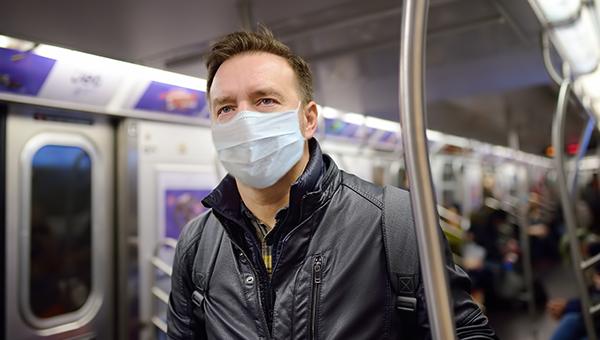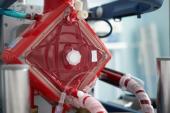Many COVID-19 Patients Do Well 1 Year After VV-ECMO
With careful selection and management, nearly 87% of patients who needed ECMO respiratory support were alive at 1 year.

Patients with severe COVID-19 who require venovenous extracorporeal membrane oxygenation (VV-ECMO) support can, if carefully selected and managed, obtain “exceptional survival” approaching 87% at 1 year, a new analysis shows.
Researchers at NYU Langone Health in New York, NY, reported their experience from the earliest months of the pandemic Thursday in the Annals of Thoracic Surgery.
Deane E. Smith, MD (NYU Langone Health), the paper’s senior author, emphasized the need to take a long view of post-COVID recovery. “Historically, the only thing people would talk about was whether a patient survived ECMO and survived to discharge. And I think, frankly, that’s a little bit narrow-minded. It’s important, for sure, but I don’t think it tells the whole story of what happened to patients who got really sick during the pandemic,” he told TCTMD, noting that it’s exciting to see how well the NYU patients were doing at 1 year.
Early reports of ECMO outcomes in COVID-19 were “discouraging,” Smith said, but their sense at NYU was that, for some reason, their patients were faring better than that. So in this paper, he and his colleagues decided to see if that was the case.
Smith pointed to three main ingredients to their VV-ECMO success: meticulous patient selection, consistent management, and the “willingness to continue to support patients who had single organ dysfunction long enough for them to recover.” The management approach, as the paper explains, emphasizes an “anticoagulation strategy, early percutaneous tracheostomy, frequent bronchoscopy, and use of prone positioning during ECMO.”
Looking back at early 2020, “it’s hard sometimes to remember what it was like when a lot of these decisions were being made,” he said, which is why it’s worth getting the details in print. Looking forward, “the real question is: how do we get [patients] out of the hospital and back to normal?”
Survival and Lung Function
Smith et al reviewed data on 415 patients admitted to the ICU of NYU Langone Health’s Manhattan campus between March 10 and May 1, 2020. Among them, 323 (77.8%) were intubated for mechanical ventilation, 80 were evaluated for ECMO due to refractory respiratory failure, and 30 (7.2%) were ultimately cannulated for VV-ECMO.
In the VV-ECMO group, the mean age was 42 years and 86.7% were men. The median hospital stay was 45 days, with VV-ECMO support lasting a median of 19 days. None required venoarterial ECMO. Twenty-eight patients (93.3%) survived through decannulation of VV-ECMO and 27 (90%) survived to discharge, with all returning to either home or a short-term rehabilitation facility. Just one required supplemental oxygen when leaving the hospital.
At a median of 10.8 months after VV-ECMO began, fully 26 of the 30 patients (86.7%) were still alive, including one who’d undergone lung transplantation. The cause of death for the patient who died after hospital discharge was end-stage liver disease while awaiting liver transplantation.
For the 12 patients who had pulmonary testing after hospital discharge, the median percent predicted forced expiratory volume was 100%. For the 16 who had a 6-minute walk test, the median distance was 350 meters.
Much has changed, of course, in the 2 years since the pandemic began, said Smith. What their data offer now is the chance to think about bigger questions.
“There are valuable lessons in the way we respond to these pandemic situations with a resource like ECMO. . . . We should have a plan for how we’re going to respond next time there is something like this. We learned a lot about ECMO from the H1N1 experience, and I think we will learn a lot about it from COVID-19, too,” he predicted. Ongoing research will help pinpoint who should go on ECMO, how they should be managed, and, more broadly, how the tool can be used to provide the best care for patients.
Caitlin E. Cox is Executive Editor of TCTMD and Associate Director, Editorial Content at the Cardiovascular Research Foundation. She produces the…
Read Full BioSources
Smith DE, Chang SH, Geraci TC, et al. One-year outcomes with venovenous extracorporeal membrane oxygenation support for severe COVID-19. Ann Thorac Surg. 2022;Epub ahead of print.
Disclosures
- Smith reports no relevant conflicts of interest.





Comments